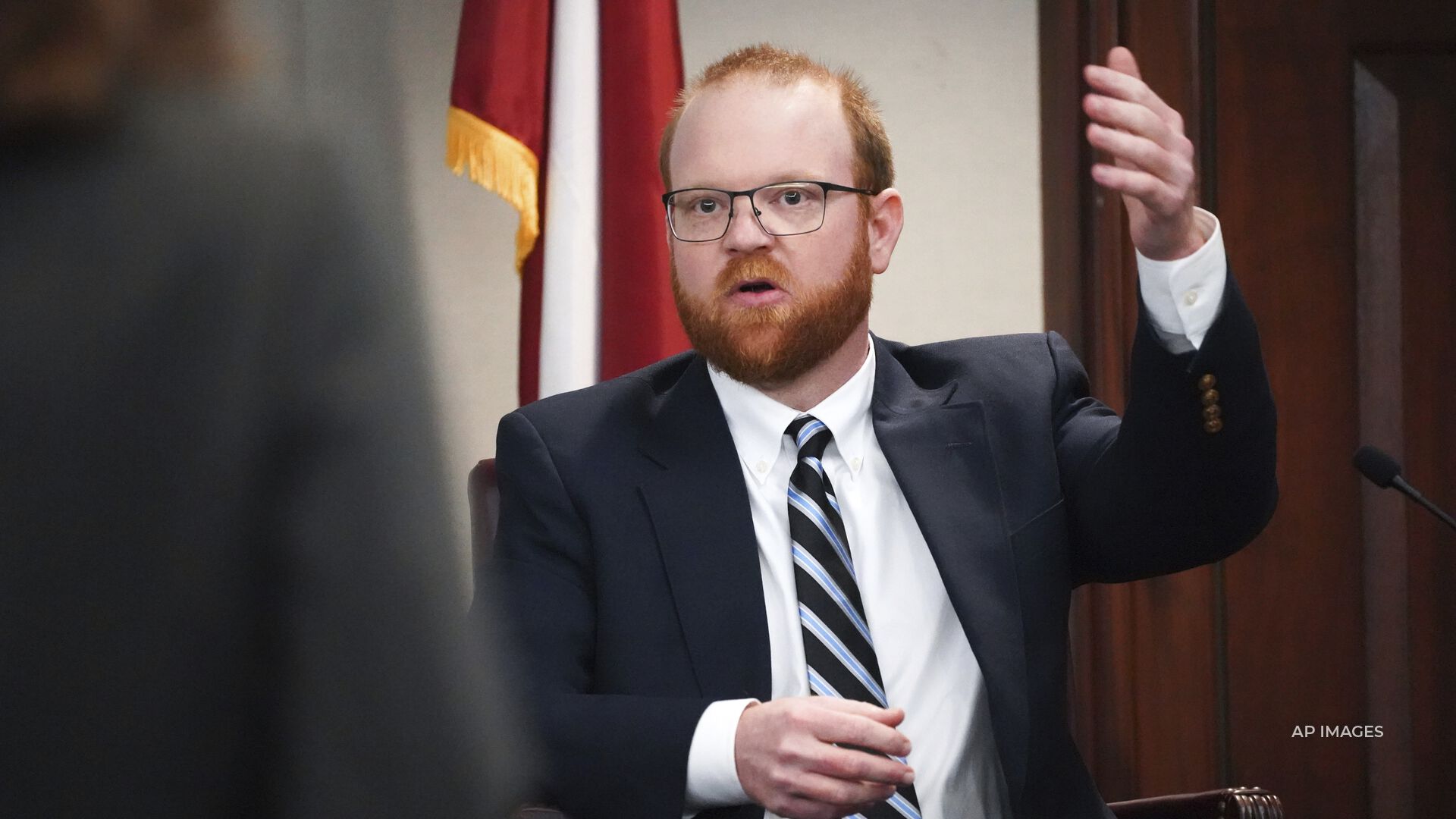
Arbery defense rests after suspect says he wasn’t threatened, Malcolm X killing convictions thrown out, Oklahoma Gov. grants clemency
Travis McMichael, Defendant: “The last time that I saw Mr. Bryan’s truck was when I was at a stop just before where I’m at now and he was attacking, he was all over that truck. And they left and I was, I never saw that truck, turned around and then Mr. Arbery’s coming back to me. Yelling at him to stop, directly to me. He wasn’t going to the left. He wasn’t going to the right. He was coming straight to me that first time. I was thinking, he’s going to try to get in this truck or he’s going to try to attack me or my dad or who knows what. He was acting weird. He was acting funny when I was trying to talk to him prior so I’m on alert. He turns, runs off. Comes back. I don’t, I’m sure I saw Mr. Bryan’s truck in this instance, but I was focused on what I perceived as a threat.”
Linda Dunikoski, prosecutor to Travis McMichael, defendant: “You didn’t know his name?”
McMichael: “No ma’am.”
Dunikoski: “Didn’t know anything about him?”
McMichael: “Nothing.”
Dunikoski: “He didn’t know you?”
McMichael: “Not that I’m aware of.”
Dunikoski: “You just knew that he was the guy who was on video at the open unsecured construction site.”
McMichael: “That I saw on the 11th.”
Dunikoski: “And at this point in time, when you first see him on Burford, he’s not reaching into his pockets?”
McMichael: “No, ma’am, not running, no ma’am.”
Dunikoski: “And he never yelled at you guys?”
McMichael: “No ma’am.”
Dunikoski: “Never threatened you at all?”
McMichael: “No.”
Dunikoski: “Never brandished any weapons?”
McMichael: “Yeah, he did not threaten me verbally, no ma’am.”
Dunikoski: “Didn’t brandish any weapons?”
McMichael: “No, ma’am.”
Dunikoski: “Didn’t pull out any guns?”
McMichael: “No, ma’am.”
Dunikoski: “Didn’t pull out any knife?”
McMichael: “No ma’am.”
Dunikoski: “Never reached for anything, did he?”
McMichael: “Uh, no.”
Dunikoski: “He just ran.”
McMichael: Yes, he was just running.”
Cy Vance, Manhattan District Attorney: “We are moving today to vacate the convictions and dismiss the indictments of Muhammed Aziz and of Kahlil Islam for the assassination of Malcolm X on February 21, 1965.”
“We have obtained dozens and dozens of reports from the FBI and the NYPD’s Bureau of Special Services and Investigations. These records include FBI reports of witnesses who failed to identify Mr Islam and implicated other suspects. And significantly, we now have reports revealing that on orders from Director J. Edgar Hoover himself, the FBI ordered multiple witnesses not to tell police or prosecutors that they were, in fact, FBI informants. Many of those documents were exculpatory. None of them were disclosed to the defense. Without these files it is clear these men did not receive a fair trial and in our purview their convictions must be vacated.”
Muhammad Aziz, exonerated in killing of Malcolm X: “The event that brought us to court today should never have occurred. Those events were and are result of a process that was corrupt to its core. One that is all too familiar to Black people in 2021. While, I do not need this court, these prosecutors, or a piece of paper to tell me I’m innocent, I am very glad that my family, my friends and attorneys who have worked and support me over these years are finally seeing the truth that we have all known, officially recognized.”
Shahid Johnson, son of Khalil Islam: “In 1975, we forced to leave where we live because it was assumed that someone was coming after us. My childhood was over at the age of 10. So right now, this is great, but not so great at the same time. So I am happy but there is still sadness. So, that’s how I feel.”
Reporter: “Sir, how are you feeling today?”
Ameen Johnson, son of Khalil Islam: “Bittersweet. Emotions running everywhere.The fact that my father and my mother are not here to experience the exoneration. It’s painful because they suffered a lot. They suffered a lot. I believe that their deaths are a direct result of the stress and trauma, and post-traumatic stress that this whole situation has forced on them. So I can’t say I am happy because they’re not here and the effects of it removed them from our lives.”
Unidentified man: “You wanted to be here, and guess what you can go home with a life! God delivered.”
Jaylyn Gardner, Julius Jones supporter: “Julius from my neighborhood, Julius was a was a kid my age and he is innocent, without reasonable doubt. He’s innocent. He really could be any of my friends. He could be my little brother, and I just don’t want to ever see anybody else in that position, ever.”






